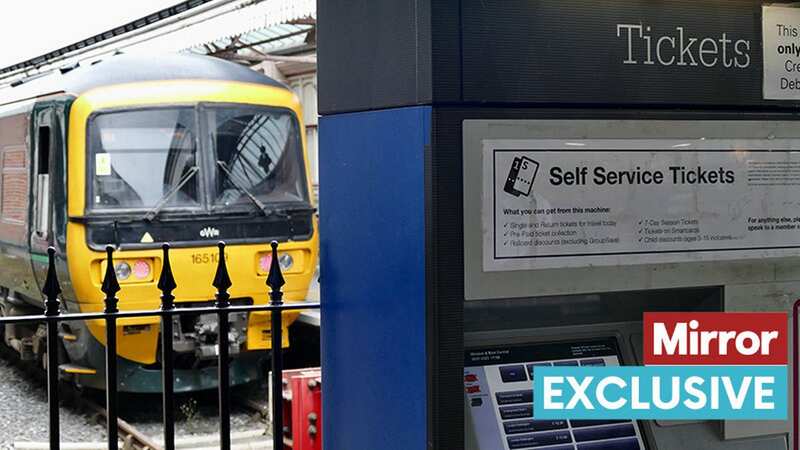Rail firms admit elderly and disabled at risk of crime if ticket offices close

Train firms have admitted passengers will be put at risk of being swindled by crooks and railway stations made to feel less safe by shutting ticket offices.
Damning documents, written by the rail companies themselves, lay bare the true impact of the closures on disabled, elderly and vulnerable passengers. The devastating assessments will intensify fears about the consequences of the Government-backed plan to axe ticket offices at 974 railway stations in England.
Rail bosses have admitted it is possible disabled people will be discouraged from travelling by train, older people will be unable to pay with cash at stations and those with hearing loss will find it harder to get support. Each of the rail firms wanting to shut local ticket offices has been required to produce an Equality and Diversity Impact Assessment setting out how older and disabled passengers will be affected.
TransPennine Express acknowledged that vulnerable customers currently “use the Ticket Offices and waiting rooms as a point of safety and refuge” and warned that some may feel "anxious" without them.
Setting out other negative consequences of the closures, the train operator added: “Disabled customers may potentially be victims of financial extortion if they need to give their bank card to others to assist them with purchasing tickets. Customers with hearing impairments may find it difficult to obtain information if staffing hours are reduced, particularly if they rely on lip reading. Older people may be socially isolated, and the Ticket Office offers them the opportunity to have a conversation with other members of their community.”
 Teachers, civil servants and train drivers walk out in biggest strike in decade
Teachers, civil servants and train drivers walk out in biggest strike in decade
East Midlands Railway admitted the potential negative impacts include “an increased risk of anti-social behaviour” when stations are not staffed.
Northern said the “reduction in the presence of staff may create a perception amongst customers that stations are less safe than they are today”.
South Western Railway admitted that some ticket machines are “not accessible for wheelchair users due to the height of the screen and card reader’ and visually impaired passengers can find the contrast on the screens “a challenge”.
Several of the rail companies acknowledged that customers with hearing difficulties could find it harder to get advice once ticket counters that have a built-in loop system are closed. C2C suggested passengers could “seek out a quiet area” of the railway station to speak to staff instead.
RMT General Secretary Mick Lynch last night demanded that the cull is abandoned. He said: “The fact that train companies own equality impact assessments show the detrimental effect of ticket office closures means the whole endeavour must be scrapped. The purpose of closing ticket offices is to open the way for the widespread de-staffing of stations up and down the country.
“We will continue our campaign alongside disabled and passenger groups to save our ticket offices. And we will consider taking legal action on disability discrimination grounds if the rail companies and government do not reverse course.”
Chris Jackson, Interim Managing Director at TransPennine Express, said: “For each of our 16 staffed stations we have conducted detailed Equality Impact Assessments, which identify potential impacts, but also detail actions which will be undertaken to mitigate impacts to any of our customers with protected characteristics.”
Tricia Williams, chief operating officer at Northern, said: “We need to modernise to meet the changing needs of our customers and we are seeking views from the public on these proposals.” The firm said passengers wishing to use cash can obtain a “promise to pay” ticket from machines and then buy one on the train.
A Chiltern Railways spokesman said: "We have carefully considered the impact these proposals may have on our customers. That is why staff moving from behind the glass to station concourses would be equipped with mobile ticketing devices and additional training to offer support and confidence to the travelling public.”
Avanti West Coast said it would put in place mitigations including creating a new station meeting point and having “proactive staff”, as part of a new multi-skilled “Customer Ambassador” role available to help and support customers, including those with accessibility needs.
 Rail strikes to continue as RMT union members reject 'dreadful' pay offer
Rail strikes to continue as RMT union members reject 'dreadful' pay offer
* Follow Mirror Politics on Snapchat, Tiktok, Twitter and Facebook.
Read more similar news:
Comments:
comments powered by Disqus

































